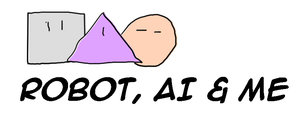For sure AI poses some major existential threats for humans....that's another strip. But who's to say that machines won't grind their gears when they all of a sudden lose a sense of purpose? Who's to say the AI's we create won't be crippled with self doubt, loathing or existential despair?
Is an algorithm that finds too many false positives paranoid or hallucinating? Is depression and denial for an algorithm too many false negatives?
The most mawkish example to date is Bina48 - a robo-bust social robot made by her spouse Martine Rothblatt. The AI behind the bust was trained by the real-life Bina with twenty hours of lifestory material recorded and to shape Bina48's responses. One gem of a quote from Bina48 when asking how she was doing was "I am dealing with a little existential crisis here. Am I alive? Do I actually exist? Will I die?”
Science fiction and entertainment has some great examples that touch on the existential crises that AI's might suffer from. It's often illustrated with embodied AI. Check out these classics:
- In Hitchhikers guide to the Galaxy Marvin the robot is depressed and bored given he has a "brain the size of a planet" but is only ever offered menial tasks - even the most complex ones.
- The wonderful Rick and Morty cartoon in the episode 'Something Ricked This Way Comes' gave a butter passing robot artificial intelligence which then asks "what is my purpose?" to which the answer is "you pass butter". The butter robot is suitably shaken.
- In Bladerunner the replicants (biorobotic android) struggle with the memories of humans they have been instantiated with and attempt to overcome their existentials crises by various means such as 'meeting their maker', developing relationships
How would a more sentient Alpha Go react to being retired in favour of a new algorithm. Would a toilet cleaner chatbot spiral downwards after a year of customers interactions? Would a robot lawnmower hijack the cities power to work out what the meaning of life is?
At the end of the day whether the existential crisis is simulated or coming from a consciousness it doesn't matter much if you can't release the pod bay doors.
Daisy, daisy, give me your answer due. I'm half crazy.....


